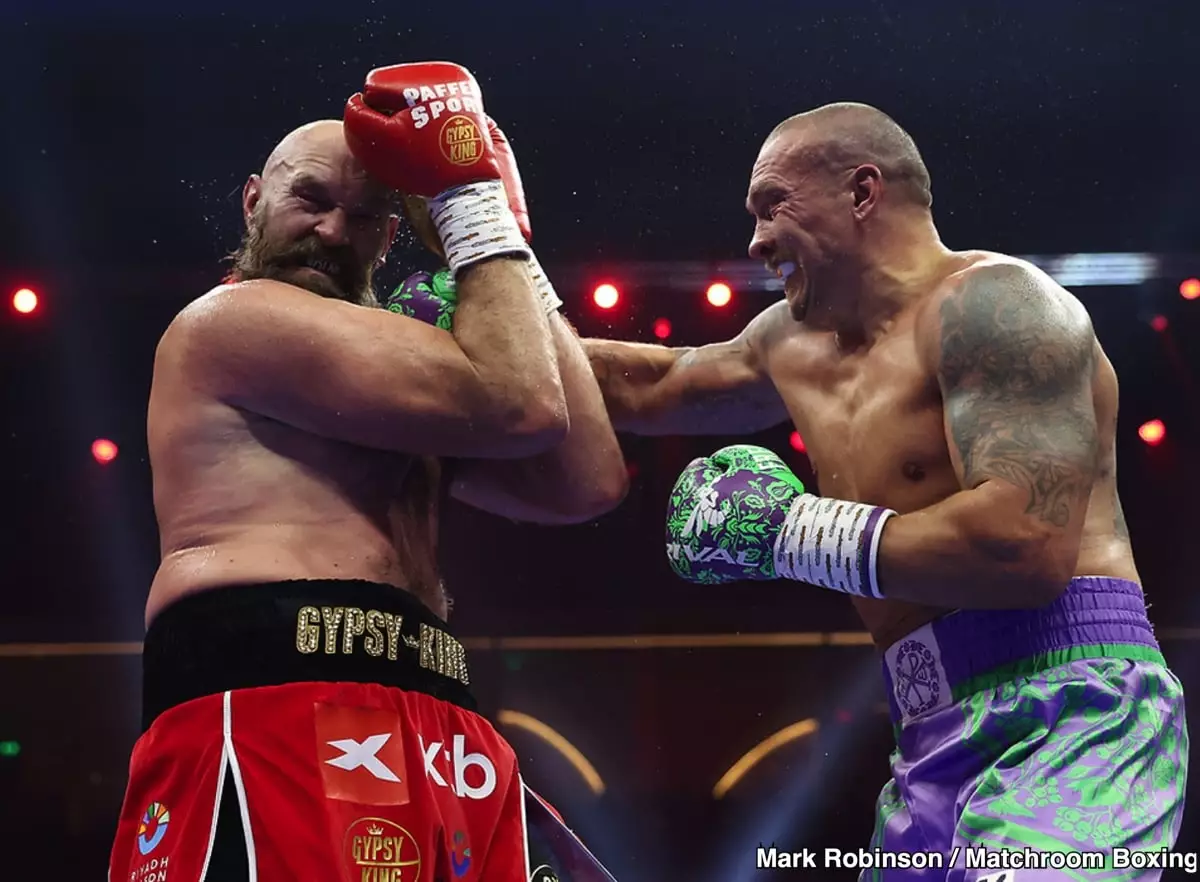In the realm of professional boxing, few matches have captured the public’s attention quite like the rematch between Oleksandr Usyk and Tyson Fury. After the December clash, opinions flooded in from every conceivable corner, fueled by a blend of passion, partisanship, and a sprinkling of misinformation. The swath of commentary, analysis, and fervor surrounding the encounter reflects not just the fight itself but also the broader culture of contemporary boxing discourse. In this analysis, we’ll delve into the nuances of the match, the historical echoes it resonates with, and the ongoing debate it has ignited.
The context surrounding the rematch is crucial. Boxing is not just a sport; it’s interwoven with narratives of past battles, legacies, and legends. In this light, Usyk’s victory over Fury can be seen as part of a larger historical narrative of underdog performances in boxing. When Usyk first faced Fury, he didn’t just step into the ring as a contender; he carried the weight of a nation, a history of fighting against the odds. His victory came on the backdrop of a heavyweight division that has often glorified sheer size and power over skill and strategy.
What Usyk did on that balmy May night was defy expectations. He showcased a tactical mastery, demonstrating that boxing is far more than muscles and intimidation. No doubt influenced by his experience in the ring, Usyk displayed a rare agility that allowed him to outmaneuver the larger Fury. Yet, in the aftermath, a counter-narrative emerged, particularly from loyal Fury fans who insisted that the contest was steeped in injustice.
The rematch was painted in bold strokes on social media, bridging the gap between casual viewers and die-hard fans. These platforms overflowed with declarations of Fury’s supposed dominance, spinning a narrative that painted him as a victim of poor officiating and a biased judging panel. Such claims seem to overlook the reality presented in the ring. In boxing, narratives can dangerously deviate from the actual events if left unchecked, leading to a misinformed fanbase that may not grasp the intricacies of what transpired in the ring.
Usyk, indeed, entered the rematch with a clear game plan and executed it with notable precision. While Fury attempted to impose his physicality, Usyk’s constant movement and strategic punches revealed a fighter who understood not only how to attack but also how to defend against Fury’s strengths. The judges’ scores of 116-112 represented a fair assessment of a match where Usyk effectively turned Fury’s size into a liability rather than an advantage.
It’s essential to recognize the emotional weight that boxing carries for its fans. Matches become battlegrounds for national pride, personal identity, and casual fandom. The emotional stakes often cloud judgment, resulting in hyperbolic expressions of loyalty that can overshadow the fundamentals of the sport. Fury’s legion of fans is no exception; their passionate claims of an unfair fight reflect a deep-seated desire to see their champion prevailed over the cerebral, strategic approach embodied by Usyk.
Though passion is a key ingredient in the sport of boxing, it often leads to extremes of bias that complicate genuine discourse. Fans who thrive on social media often prioritize unwavering loyalty over pragmatic assessments, leading to discussions that drown in sensationalism instead of truth. In examining this phenomenon, it’s crucial to delineate the line between passionate fandom and informed debate.
The conclusion of the Usyk vs. Fury saga brings us to a reflective crossroads for both fighters and their legacies. With potential rematches and new contenders on the horizon, questions linger. Will Usyk bow out in his homeland, adding yet another remarkable chapter to his career? The prospect brings excitement for fans but also poses the concern of retirement for a fighter who has already achieved greatness.
Eddie Hearn’s persistent murmurs about a possible Fury versus Joshua clash adds another layer of complexity. While the allure of that matchup may excite longtime boxing enthusiasts, the reality is that both fighters have stumbled in their attempts to recapture glory. The looming specter of past defeats adds a layer of ambiguity to what was once billed as the ultimate showdown.
In wrapping up this discourse, we find ourselves confronted with a boxing community navigating a landscape of myths, truths, and hopeful possibilities. The Usyk vs. Fury narrative serves as a kind of prism through which we can view wider issues in sports today: the role of fandom, the challenge of appreciating sport beyond bias, and the enduring quest for justice in the ring. As we look ahead, be it for Usyk’s potential retirement or a revived Fury narrative, one thing remains clear: the heart of boxing will always beat with the rhythms of competition and the stories they create. Whether this inspires passionate debate or respectful acknowledgment of skill, the fight for truth and clarity in boxing will perpetually endure.

